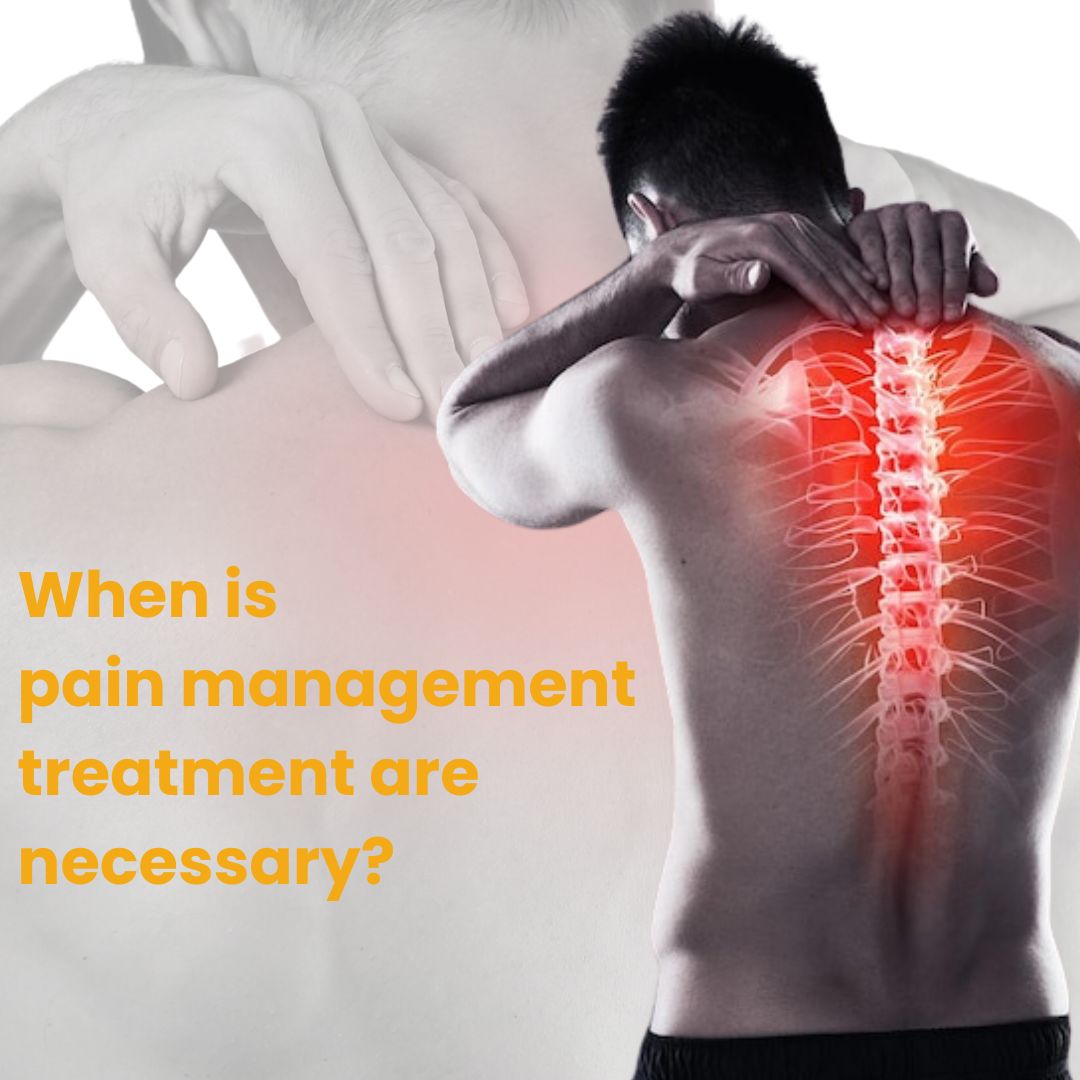Introduction
When addressing the issue of pain management, it is crucial to understand the context in which it becomes necessary. Pain is a subjective experience that can vary greatly from person to person, making its management a complex and multifaceted task. While pain is a natural response to injury or illness, it is essential to distinguish between acute and chronic pain to determine the appropriate treatment approach. Acute pain typically occurs after an injury and serves as a warning signal to the body, indicating the presence of tissue damage. In contrast, chronic pain persists for an extended period, often exceeding three months, even after the initial cause of the pain has healed. Chronic pain can significantly impact an individual's quality of life, often leading to physical and psychological suffering. Therefore, understanding the appropriate circumstances in which pain management becomes necessary is crucial for healthcare professionals to alleviate patient discomfort and improve overall well-being.
When is pain management necessary?
Pain management becomes necessary when an individual experiences persistent or chronic pain that adversely affects their quality of life. Symptoms that may warrant pain management include severe and constant pain that lasts for weeks or months, pain that is not relieved by over-the-counter medications, pain that interferes with daily activities or work, and pain associated with significant emotional distress such as depression or anxiety. It is important to address pain promptly and effectively to prevent complications and improve overall well-being. Pain management interventions can range from non-invasive techniques such as physical therapy and counseling to more invasive procedures like nerve blocks or medication management. The goal of pain management is to alleviate or reduce pain, improve functioning, and enhance the individual's quality of life.
Indications for Pain Management;
Pain management becomes necessary when an individual experiences symptoms that significantly compromise their quality of life or daily functioning. Symptoms that often warrant the need for pain management include chronic pain, surgery-related pain, cancer-related pain, and pain associated with certain medical conditions such as fibromyalgia and arthritis.
Acute pain, often resulting from injury, typically lasts for a short duration and can be managed effectively through appropriate pain medications and therapies. On the other hand, chronic pain persists for an extended period, typically longer than three months, and requires ongoing pain management interventions. Surgery-related pain is a common indication for pain management as it involves a substantial level of discomfort postoperatively, which can hinder patients' recovery and overall well-being. Similarly, cancer-related pain, which may arise due to the disease or its treatment, necessitates effective pain management to alleviate suffering and enhance the patient's quality of life. Additionally, certain medical conditions like fibromyalgia and arthritis often cause chronic pain and necessitate pain management strategies to maintain functional ability and relieve discomfort. In all these instances, pain management becomes essential to discuss with Neck And Back Pain Clinic Coimbatore to improve patient's mental and emotional well-being, enabling them to lead fulfilling lives.
Common Symptoms Requiring Pain Management;
Pain, the unpleasant sensory and emotional experience associated with actual or potential tissue damage, is a fundamental aspect of human existence. However, there are certain symptoms that necessitate the implementation of pain management strategies to alleviate suffering and restore functionality. Firstly, chronic pain, defined as pain that persists for longer than three months, is a widespread symptom that affects millions of individuals worldwide. Conditions such as osteoarthritis, fibromyalgia, and low back pain often lead to an insidious onset of chronic pain, generating significant physical and psychological distress. Furthermore, acute pain, typically resulting from injury or surgery, can cause severe discomfort and hinder recovery. In these cases, prompt pain management interventions are crucial to facilitate healing and optimize the patient's overall well-being. Additionally, cancer-related pain is a prevalent symptom that requires consultation with a back pain specialist in Coimbatore for pain control approaches. As malignant tumors grow and invade surrounding tissues, they can cause sharp, throbbing, or dull pain that can be difficult to manage without the assistance of pharmacological and non-pharmacological interventions. Therefore, recognizing and addressing these common symptoms requiring pain management is essential in providing comprehensive care to individuals experiencing debilitating pain.
Importance of Timely Pain Management;
When it comes to pain management, timeliness is of utmost importance. Swift and effective pain management can alleviate suffering and prevent complications, leading to better patient outcomes. It is widely acknowledged that untreated or poorly managed pain can have detrimental effects on physical, psychological, and social well-being. Physically, unmanaged pain can impede the healing process, prolong hospital stays, and increase the risk of complications and readmissions. Moreover, inadequate pain management can lead to a decreased quality of life, contributing to anxiety, depression, sleep disturbances, and impaired cognitive function. Socially, unrelieved pain can disrupt social roles and relationships, limiting social activities and reducing participation in normal daily routines. Therefore, timely pain management is crucial in providing holistic care, enhancing patient comfort, and facilitating a quicker recovery.
Conclusion;
In conclusion, pain management is a crucial aspect of healthcare that should be employed when symptoms of pain are present. It is essential to assess the severity of the pain and its impact on the individual's daily activities, as well as to identify the underlying cause. While mild and occasional pain may be manageable with over-the-counter medications and home remedies, persistent or severe pain often requires intervention from healthcare professionals. By working closely with patients, healthcare providers can effectively address their pain symptoms and improve their overall quality of life. Additionally, pain management should not solely rely on pharmacological treatments but should also incorporate alternative therapies and multidisciplinary approaches to provide comprehensive care. Therefore, recognizing the need for pain management and promptly accessing appropriate interventions is crucial for patients to effectively manage their symptoms and achieve optimal health outcomes.







0 Comments